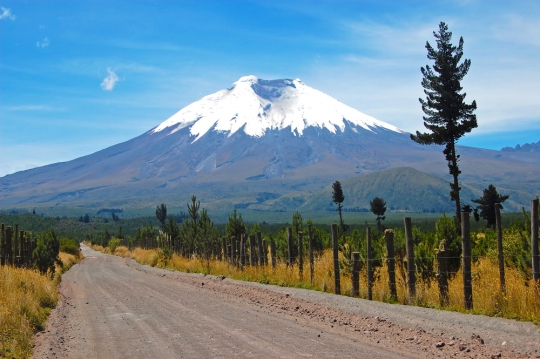Ah… visas. Yes, we can almost hear the collective groan now. It’s true that visa paperwork is often not the most straightforward, and with many countries regularly changing their rules with little to no warning, it’s a constant battle to stay up to date with what you are eligible for. In addition, researching how to apply for visas, the processing time, and other important factors you’ll need to take into account when planning your next relocation all take time. That’s why we’ve created this definitive guide on working visas in Ecuador to answer all your questions regarding types of visas, processes and more.Ecuador is considered to have something for everyone, from small, quaint towns and villages to bustling cities with vibrant nightlife. It’s not generally somewhere expats move to make their fortune, but rather people come here for the pace and quality of life. Ecuadorian people are friendly and welcoming, which is a huge plus when you’re moving to a new country without knowing anyone beforehand.
It is worth noting that visa policies and regulations in Ecuador change frequently. We do our best to obtain the most up to date and accurate information, but you may want to also check with your local embassy or consulate.
What Type Of Working Visa Can You Get In Ecuador?
There are essentially two types of work visa in Ecuador, which encompass multiple sub-categories. The system changed in 2017 in a bid to simplify the process. However, you may still see information that still refers to the old visa system, described below.
9-IV (Resident) Visas
This group of visas covered pensioners (9-I) and investors (9-II and 9-III) as well as work, legal and religious visas (9-IV).
12-VI (Non-Resident) Visas
This group of visas covered students (12-V), general works visas (12-VI) and religious missionary and volunteer visas (12-VIII).
There were around 12 sub-categories for migration status in total:
• Worker
• Independent means (passive income and so on)
• Pensioner
• Investor
• Scientist, researcher or academic
• Athlete, artist or cultural agent
• Religious missionary or religious volunteer
• General volunteer
• Student
• Professional, technician, technologist or master craftsman
• Dependent (such as children, spouse or common law partner)
• International protection
As previously mentioned, in a bid to simply things, this process has now been split into two categories, which still encompass the above. They have the umbrella heading of Ecuador residency visas and are separated into temporary and permanent residency. You will usually have to apply for the temporary residency visa before you can apply for the permanent one. You must apply for one of these visas if you plan to work in Ecuador, rather than one of the temporary extended tourist visas, as once you enter the country on the extended tourist visa, you cannot then switch to a temporary residency visa.
Length Of Visas
A temporary resident visa allows you to stay in Ecuador for a period of up to two years, and can be renewed once. After residing in the country for a minimum of 21 months on the temporary visa, you can obtain a permanent residency visa. Permanent residents cannot spend more than 180 consecutive days out of the country within the first two years. Following this initial two-year period, permanent residency holders can then leave the country for up to five years without losing their status.
What Are The Visas For?
The Ecuadorian working or residency visas are generally aimed at skilled workers and students, as well as people with passive incomes such as investments and pension payments who are looking to relocate. In some cases, these visas are for people undertaking humanitarian or voluntary work.
How I Apply For A Work Visa For Ecuador?
You can apply for a visa at your local embassy or consulate, or your employer can begin the application process on your behalf. This will need to be done before you enter the country.
Am I Eligible For A Working Visa In Ecuador?
Technically, under the law that was passed in Ecuador two years ago, every migrant has the right to apply for a visa. This is necessary in order to benefit from the justice system and constitutional guarantees regardless of your migratory status. Your eligibility will depend on the job for which you are applying and whether you have the necessary skill set and qualifications for it.
What Else Will I Need?
Regardless of visa type, you’ll need to be able to show proof of private health insurance or sign up to Ecuadorian social security and get a social security number. You must have one of these things to be able to work in the country legally, but you do not necessarily need both for a temporary residency visa.
Have you lived in Ecuador? Share your thoughts in the comments below, or answer the questions here to be featured in an interview!

